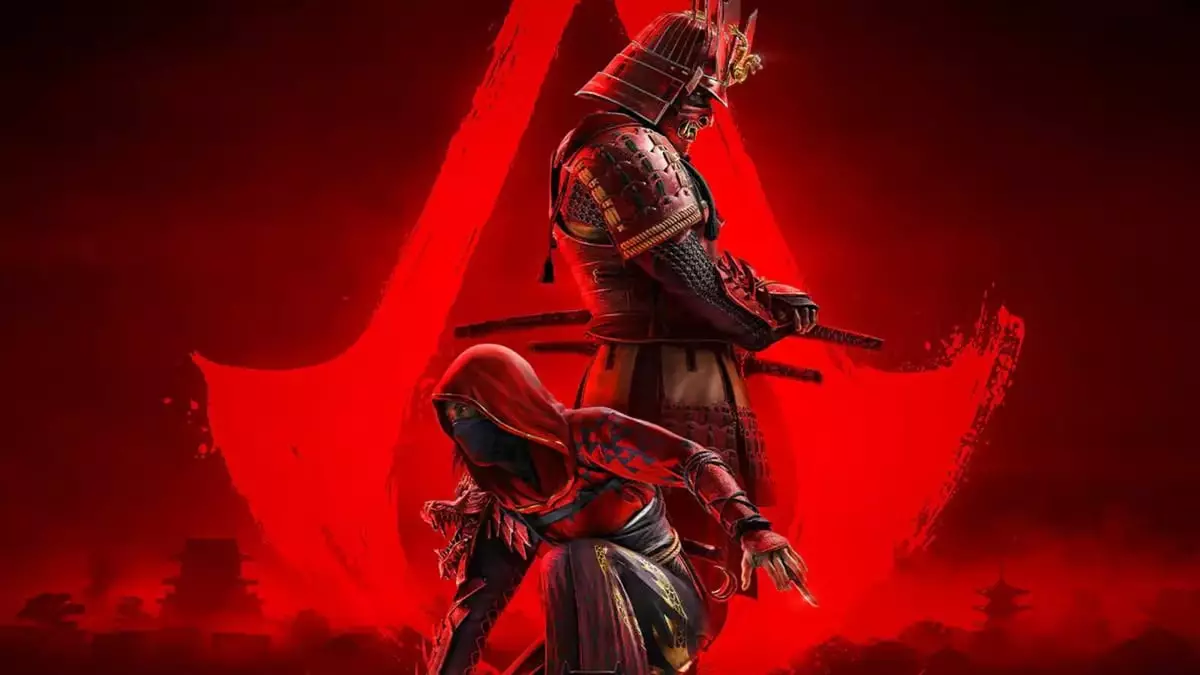As the gaming landscape evolves, the release of the Nintendo Switch 2 opens new dimensions for developers, particularly for big names like Ubisoft. With speculation swirling around several notable titles aimed for this hybrid console, the recent announcement of Assassin’s Creed Shadows has sparked excitement among gamers. This installment promises to integrate the acclaimed Assassin’s Creed franchise with an innovative approach tailored for the Switch’s capabilities. Featuring a rich narrative, dynamic gameplay, and a compelling setting, Shadows draws players into a world steeped in ancient feudal Japan, presenting a unique fusion of history and fantasy.
The Dark Allure of Feudal Japan
In this newest chapter, players are introduced to two main characters: Naoe, a female shinobi, and Yasuke, an African samurai. This choice of protagonists is significant, as it not only highlights a diverse representation in gaming but also immerses players in an era filled with transformative narratives. The game’s historical backdrop offers a potential for depth that many titles struggle to achieve. The inclusion of strong, multifaceted characters like Naoe and Yasuke might attract a wide demographic, especially those interested in narratives that reflect the complexities of cultures.
However, the accolades come with a weighty warning. Ubisoft has received a PEGI 18 rating for this game due to its graphic depictions of violence, including dismemberment and targeting vulnerable characters. Such content may be polarizing; while some players seek thrilling, visceral experiences, others may find it disheartening. This complexity mirrors the intricacies of the era it depicts, adding a layer of moral ambiguity that could amplify player engagement.
Gameplay Dynamics and Immersion
Assassin’s Creed Shadows is categorized as an action role-playing game, and if past titles in the series are any indication, gameplay mechanics will blend stealth, combat, and narrative choice seamlessly. Players will have the opportunity to execute graphically intense maneuvers, which can lead to immersive gameplay but also presents ethical dilemmas. The potential for players to engage in hostage situations and orchestrate violence against civilians brings forth questions about the ramifications of such actions within the game world. Is it merely entertaining, or does it cross a line into sensationalism?
Moreover, Ubisoft’s choice of in-game purchases, including cosmetic bundles and Helix Credits, can ignite debates about monetization practices in this context. Though players can enjoy the game without spending additional money, the presence of these optional purchases raises concerns. Will it alienate players seeking a more straightforward experience? The industry’s tendency toward in-game purchases may distract from the core gameplay experience that many players yearn for.
The Anticipation Building
The announcement of Assassin’s Creed Shadows follows Ubisoft’s confirmation of another high-profile title, Star Wars Outlaws, set to launch on the Switch 2. This dual approach indicates Ubisoft’s strategy to leverage the Switch’s unique gaming advantages while broadening its target audience. With such significant titles on the horizon, the buzz within the gaming community intensifies. Are gamers prepared for the darker narratives Ubisoft is bringing to the Switch 2?
A trailer teasing the second story pack DLC for Star Wars Outlaws has already revitalized excitement in Ubisoft’s catalog. This injection of content could pave the way for nimble updates in Assassin’s Creed Shadows, ensuring the game evolves post-launch and keeps players engaged.
The Cultural Context and Responsiveness to Audiences
As gaming technology grows more sophisticated, developers are tasked with navigating complex narratives and moral dilemmas more thoughtfully than ever before. The portrayal of seppuku within Assassin’s Creed Shadows speaks volumes about Ubisoft’s dedication to historical accuracy, yet it also raises a crucial question: how do such representations impact the player’s experience? Understanding the cultural significance behind such acts highlights the delicate balance between entertainment and respect for the historical traditions.
Arriving at a time when gamers increasingly seek not just to play but to engage critically with the narratives they consume, Assassin’s Creed Shadows must thoughtfully navigate this storm of expectations. The ability to foster critical conversations around morality in gaming without sacrificing engagement is perhaps the greatest challenge—and opportunity—facing Ubisoft in this new chapter.
When it arrives, will players embrace the brutality of Shadows as an impactful exploration of its historical landscape, or will they recoil at its darker aspects? Only time will tell how this bold venture will resonate with the gaming community.

